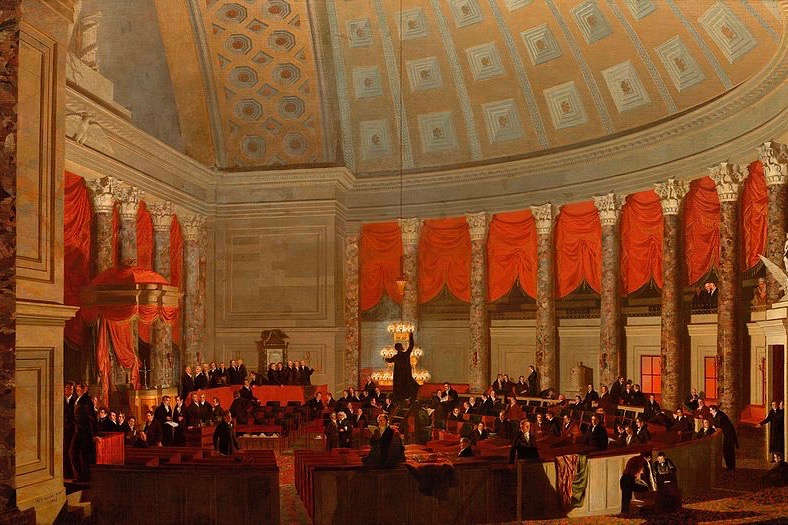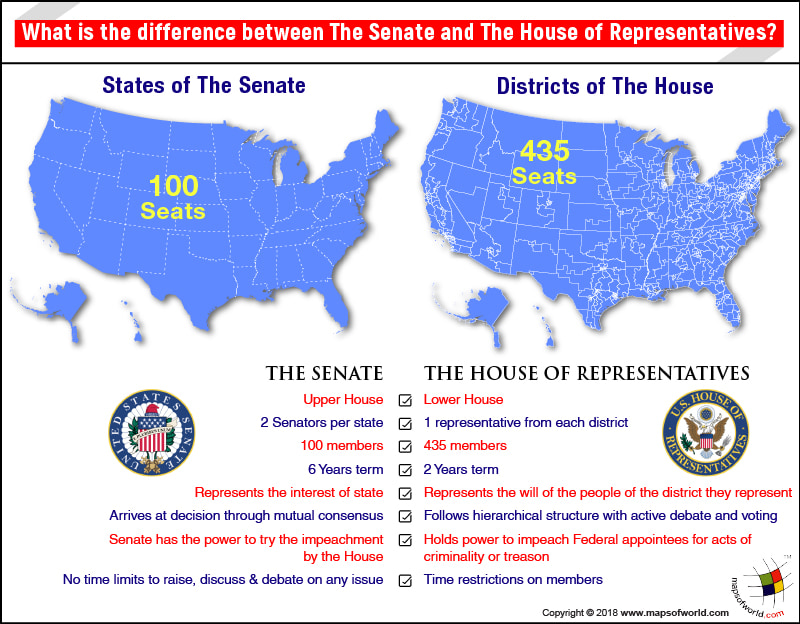Table Of Content

Instead, they delegate the responsibility of presiding to other members in most cases. The presiding officer sits in a chair in the front of the House chamber. The powers of the presiding officer are extensive; one important power is that of controlling the order in which members of the House speak. No member may make a speech or a motion unless they have first been recognized by the presiding officer. Moreover, the presiding officer may rule on a "point of order" (a member's objection that a rule has been breached); the decision is subject to appeal to the whole House. Representatives are usually identified in the media and other sources by party and state, and sometimes by congressional district, or a major city or community within their district.
Committee Websites
Before members are assigned to committees, each committee’s size and the proportion of Republicans to Democrats must be decided by the party leaders. The total number of committee slots allotted to each party is approximately the same as the ratio between majority party and minority party members in the full chamber. The 435 congressional districts do not include the District of Columbia, Puerto Rico, and the U.S.’s four other island territories — American Samoa, Guam, the Northern Mariana Islands, and the U.S. Virgin Islands — which each send a non-voting delegate to the House. The speaker is the presiding officer of the House but does not preside over every debate.
U.S. Congress - statistics & facts

The Constitution provides that the Senate's "advice and consent" is necessary for the president to make appointments and to ratify treaties. Thus, with its potential to frustrate presidential appointments, the Senate is more powerful than the House. Representatives use the prefix "The Honorable" before their names. A member of the House is referred to as a representative, congressman, or congresswoman. USA TODAY is exploring the questions you and others ask every day.
Government Oversight
Saturday's vote marked the first time the House had approved billions of dollars in Ukraine aid since December 2022, when Democrats still controlled the chamber. GOP Reps. Marjorie Taylor Greene and Thomas Massie railed on House Speaker Mike Johnson and his handling of the foreign aid bills, despite deciding not to move to oust the speaker Saturday. Senators could try to strip out the TikTok legislation, but policy analysts view it as unlikely, as quickly approving the foreign aid is a top congressional priority. Twenty-five Republicans voted against the fourth bill, which included measures that could lead to a ban on TikTok in the United States and that would redirect funds from seized Russian assets to help aid Ukraine. Democrats put up a big vote — 174 — in favor of this bill, which was intended to sweeten the overall package for conservatives.
The makeup of the Rules Committee has traditionally been weighted in favor of the majority party, and has been in its current configuration of 9 majority and 4 minority members since the late 1970s. The ranking member leads the minority members of the committee. The House will sometimes form a special or select committee for a short time period and specific purpose, frequently an investigation. All committees have websites where they post information about the legislation they are drafting. Go to the Clerk’s site for more information about representatives. Launched in 2004, GovTrack helps everyone learn about and track the activities of the United States Congress.
Tracking Retirements in the House: Who Is Leaving Congress? - The New York Times
Tracking Retirements in the House: Who Is Leaving Congress?.
Posted: Thu, 14 Dec 2023 08:00:00 GMT [source]
Members of Congress
The term of the replacement member expires on the date that the original member's would have expired. The group ThirtyThousand.org argues that the framers of the Constitution and the Bill of Rights never intended for the population of each congressional district to exceed 50,000 or 60,000. "The principle of proportionally equitable representation has been abandoned," the group argues. Federal law, passed on Aug. 8, 1911, determines how many members are in the House of Representatives. That measure raised the number of representatives to 435 from 391 because of population growth in the United States. While all Democrats voted in favor of aid to Ukraine and all but Ms. Tlaib supported funding to Taiwan, 37 left-leaning Democrats defected to vote against the Israel aid bill.
Connolly, 130 Members of Congress Urge Humanitarian Aid, Safe Passage for Palestinians - Gerry Connolly
Connolly, 130 Members of Congress Urge Humanitarian Aid, Safe Passage for Palestinians.
Posted: Fri, 20 Oct 2023 07:00:00 GMT [source]
Distribution of the United States House of Representatives 2024, by age
Only the presiding officer may be directly addressed in speeches; other members must be referred to in the third person. In most cases, members do not refer to each other only by name, but also by state, using forms such as "the gentleman from Virginia", "the distinguished gentlewoman from California", or "my distinguished friend from Alabama". The House also has the power to formally censure or reprimand its members; censure or reprimand of a member requires only a simple majority, and does not remove that member from office. Seats vacated during a term are filled through special elections, unless the vacancy occurs closer to the next general election date than a pre-established deadline.

Representatives by Party
50% of senators are men over the age of 60, while only 7% of senators are women 60 years old or younger. The table below shows a breakdown of how many years the senators have been serving in office. The District of Columbia, Puerto Rico, and the U.S.’s four other island territories — American Samoa, Guam, the Northern Mariana Islands, and the U.S.
Senators by Party
Official websites use .govA .gov website belongs to an official government organization in the United States. Read USA TODAY’s coverage of election toss-ups and races to watch here. Test your knowledge of the average age of members of Congress over time. The U.S. House of Representatives has chosen the winner of a presidential election on two occasions—1800 and 1824. The three primary House office buildings—Cannon, Longworth and Rayburn—share a room numbering system for above-ground rooms that might confuse visitors at first.
The chairs of House committees, particularly influential standing committees such as Appropriations, Ways and Means, and Rules, are powerful but not officially part of the House leadership hierarchy. Until the post of majority leader was created, the chair of Ways and Means was the de facto majority leader. The Constitution provides that the House may choose its own speaker.[50] Although not explicitly required by the Constitution, every speaker has been a member of the House. The Constitution does not specify the duties and powers of the speaker, which are instead regulated by the rules and customs of the House. Under the Presidential Succession Act (1947), the speaker is second in the line of presidential succession after the vice president.
Other floor leaders are chosen by the Democratic Caucus or the Republican Conference, depending on whichever party has more voting members. Most committee work is performed by twenty standing committees, each of which has jurisdiction over a specific set of issues, such as Agriculture or Foreign Affairs. Each standing committee considers, amends, and reports bills that fall under its jurisdiction. Committees have extensive powers with regard to bills; they may block legislation from reaching the floor of the House. Standing committees also oversee the departments and agencies of the executive branch. In discharging their duties, standing committees have the power to hold hearings and to subpoena witnesses and evidence.
From 1910 to 1975 committee and subcommittee chairmanship was determined purely by seniority; members of Congress sometimes had to wait 30 years to get one, but their chairship was independent of party leadership. The rules were changed in 1975 to permit party caucuses to elect chairs, shifting power upward to the party leaders. In 1995, Republicans under Newt Gingrich set a limit of three two-year terms for committee chairs. The chairman's powers are extensive; he controls the committee/subcommittee agenda, and may prevent the committee from dealing with a bill. The senior member of the minority party is known as the Ranking Member.
In some committees like Appropriations, partisan disputes are few. Also referred to as a congressman or congresswoman, each representative is elected to a two-year term serving the people of a specific congressional district. Among other duties, representatives introduce bills and resolutions, offer amendments and serve on committees.

No comments:
Post a Comment